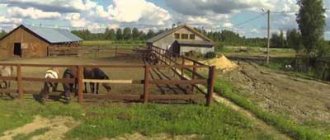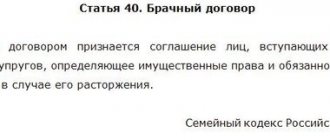Personal rights and freedoms of citizens of the Russian Federation are what everyone living in Russia is entitled to from birth to the end of their lives. The state undertakes to provide them to people, protect them and, if possible, expand them.
Russian legislation has been brought in line with the norms and requirements of the international community. Therefore, what is due to a person and citizen in the Russian Federation is identical to what is due to people living in other developed countries.
The Constitution is the fundamental law of the Russian Federation. Guarantees the rights and freedoms of man and citizen
In general about rights and freedoms
All our freedoms and rights are manifested every day in our relationships with other people, organizations and the state. Legal doctrine has conventionally divided what people are entitled to into types. We are entitled to the following types of rights:
- personal;
- cultural;
- socio-economic;
- political;
- environmental.
Often, some rights are intertwined with others. Much depends on from what position the individual is viewed: as a person or as a citizen.
Most of the rights of Russian citizens can be found in the Constitution. All of them (the main selection) are reflected in Chapter 2 of this document.
The main articles of Chapter 2 of the Constitution of the Russian Federation on “the rights and freedoms of man and citizen”
What are personal rights?
Personal civil rights of a citizen of the Russian Federation are often called simply personal or simply civil. They can be of a property or non-property nature.
Personal non-property rights
Moral rights do not refer to the ownership of anything tangible. This category comes into force from the moment a person is born. They give you the following rights:
- live, breathe air;
- receive a first name, last name, patronymic at birth;
- choose a place to live at your discretion;
- choose a religion in accordance with your views and beliefs;
- move freely within the state and beyond its borders;
- do not work under duress;
- answer to the law and people only when the court makes an appropriate decision;
- to be inviolable;
- conduct confidential correspondence with other citizens.
No one should trample on your dignity. Basic personal rights and freedoms also include freedom of conscience. This is a broad and extremely important concept in which you can independently form and revise your beliefs. For more information about “freedom of conscience,” see the following video.
Personal property rights
Property rights differ from personal non-property rights in that they relate to the fact of ownership of something. According to them you can:
- own movable and immovable property, goods, etc.;
- demand compensation for damage caused;
- own your own literary, musical, artistic works or inventions and developments;
- receive an inheritance.
In this case, the objects are any things that are the property of a certain citizen. These can be not only objects, but also money. The difference between personal non-property rights and property rights is also that the former are intangible, they are inseparable from the person. They have no economic content.
Types of property rights in the Russian Federation
Theses
- A hero is a person who can sacrifice his own interests to achieve a good goal.
- A hero is defined by a great deed aimed at saving people or helping a person.
- A true hero is one who accomplishes feats without demanding awards or titles.
- A person can only be called a hero if he strives to make the world a better place and devotes himself to this cause.
- A hero is a brave and selfless person who always goes to board his goal, but at the same time is ready to pay for success only with his life.
- Heroes are not gladiators on the battlefield. They live among us and show heroic traits every day, overcoming pain or helping other people, raising children alone or working for the good of the family. Every person who does good deeds without demanding recognition and praise can be called a hero.
- The measure of heroism is determined not only by the courage of an act, but also by its social significance. Heroes make a great contribution to people's lives and save the world from impending disasters.
- A hero is an outstanding personality who has demonstrated his potential in history and is imprinted in people's memory.
- A hero is a person who is able to neglect himself for the sake of the highest goal that is significant to humanity.
- You can always recognize a hero by how modestly he behaves after committing a significant act. He does not boast of his feat, but considers it his moral duty.
What are political rights
A significant difference between the political rights of citizens of the Russian Federation and other types is their connection with the citizenship of a particular person. This group is constitutional rights that determine the interaction of an individual with the state, his participation in the social and political life of the country. Here is a list of the basic rights of Russian citizens, of a political nature:
- we have been given universal equality before the laws of the Russian Federation;
- we can create unions and associations without asking permission;
- Russians have the right to apply to government and other authorities with applications, which will be accepted and considered;
- citizens can organize strikes if they consider such a measure necessary;
- people can freely gather and hold meetings both outdoors and indoors;
- Censorship is prohibited in the Russian Federation, speech and press are free.
The list goes on. Often it also includes what is included in a person’s personal rights and freedoms. For example, freedom of conscience applies in both cases. On the one hand, it relates to a specific individual, on the other, it determines her relationship with society and the country.
Basic political rights in the Russian Federation
On the socio-economic rights of citizens
If basic personal rights cannot be shared with their owner and most of them a person receives only when he is born, what relates to the socio-economic aspect is often acquired in the process of life as he grows up. This area is directly related to production relations and the distribution of material goods. This area is designed to meet the economic needs of every Russian.
What is included in the list of rights
The group includes the rights:
- To work. You may or may not perform work. You are entitled to a monetary reward for your work. When starting work, you first sign an agreement with the employer, who is obliged to comply with the laws of the country and in particular the Labor Code. How to find a job, for example, in Moscow, read here.
- The first point implies the right to fair working conditions and an eight-hour working day, a 40-hour working week. Your work must be adequately paid. What is the average salary in Russia, see here.
- For social assistance. Every citizen of the Russian Federation has the right to receive benefits and preferences corresponding to his status. These are pensions based on age, length of service, disability, compensation, benefits and other payments for socially vulnerable segments of the population or persons who have special merits to the state. Useful article – pensions in different European countries.
- For housing. This means that your housing should be affordable and accessible, suitable for normal life, and consistent with the cultural traditions of your family.
Basic socio-economic rights in the Russian Federation
- For health protection. Every person can count on being provided with honey if necessary. help. You can achieve the highest level of mental and physical health. This is also stated in the European Social Charter.
The point is that every person with or without citizenship should be provided with the necessary material benefits.
Arguments
M.A.
Sholokhov, “The Fate of Man” . We call a hero a person who sacrifices his interests for the good of society and even humanity. Such a person was described by Mikhail Sholokhov in the story “The Fate of a Man.” Andrei Sokolov was a completely ordinary Soviet driver. He had no military background or even an inclination to fight. He led the quiet life of an exemplary family man. But war broke out, and he, like thousands of other men, had to make a choice between himself and his Motherland. Andrey went to the front as a volunteer. He honestly defended the Fatherland, but in a state of shell shock he was captured. There all his heroism was required. To prevent the execution of communists and commanders captured by the enemy, Sokolov himself killed the traitor and informer. It was not easy to decide on this; Andrei has never been an aggressive person. However, to save the others, he risked himself. He did not yield to fate even when he refused to drink to the victory of the enemy state. He preferred death to shame, and his strength of spirit amazed even experienced executioners. Sokolov's behavior is a clear illustration of what it means to be a hero. He never boasted about his exploits, but always sacrificed himself to help others and defend his ideals.
M. Gorky, “Old Woman Izergil”
. A true hero is someone who takes responsibility for other people and leads them to the light. Leaders have always been recognized by the people as the most significant personalities for society, and for good reason, because they have to abandon everything personal for the sake of the general. We find such an example on the pages of the story “Old Woman Izergil”. When the wanderers despaired of finding a way out of the forest, Danko took upon himself the search for a clearing in the dense thicket. He led the campaign and inspired people to fight for survival. It just seems like being in charge is nice. In fact, Danko did not even receive gratitude for his courage and determination. In moments of a new attack of despair, everyone began to blame him for the failure that had happened. And then Danko tore his heart out of his chest and led all those who scolded and hated him to freedom and happiness. The tribe left the forest, found a place for a new city, but its hero left the saved world forever. And he died with a smile on his lips, because he was glad that he could help people. This is the nature of a true hero: he is happy to devote himself wholeheartedly to a society that needs him.
A.S. Pushkin, "The Captain's Daughter"
. A true hero is one who is capable of courageous, decisive and generous actions. His courage is supported by moral authority, which illuminates every feat with social significance. This is how the hero of the novel “The Captain's Daughter” appeared before the reader. At the very beginning, Pyotr Grinev was just an infantile teenager from a rich family who wasted money and shouted at the servant. But in the Belogorsk fortress he matured and learned to put his father’s covenants into practice. Grinev cherished honor from a young age, but for him honor was integrity, and not a high assessment of his loved one. Therefore, he risked himself to restore the good name of Marya Mironova and punish her offender. Peter did not spare himself even when the rebels besieged the fortress. He preferred execution to betrayal, and only Pugachev’s whim saved him from reprisals for his beliefs. But even the fear of meeting his tormentors again did not stop Peter when he went alone to rescue Marya from captivity. It would seem that these battles and risks should have hardened the young man’s heart. But he was still able to forgive his enemies when the time came to face them. He did not take revenge on Shvabrin, and did not harbor any grudge against Pugachev. And all because a real hero is not only brave and decisive, but also truly kind. Only nobility pushes him to exploits in the name of saving other people.
A.T. Tvardovsky, “Vasily Terkin”
. Our country will never forget the heroes who saved its future from the brown plague. Our valiant ancestors deserve eternal memory and recognition. But they themselves did not think so at all. They fought for their homeland without expecting awards or honors. For them it was a matter of honor, a moral duty. The mentality of the hero-liberator was described by A.T. Tvardovsky in the poem “Vasily Terkin”. Vasily was a simple village guy, he never fought and did not even aspire to it. But invaders came to his land, and he put on a soldier's overcoat. He quickly learned front-line life. And in each chapter the reader sees how the brave warrior accomplishes feat after feat: swims across an icy river to bring a report on time, hits a plane with a gun and shoots it down, consoles his comrades with a song and overcomes death itself. But at the same time, Vasily does not demand awards and medals. He sincerely and selflessly longs for the liberation of his native land. He sees his purpose in helping her get rid of the occupation. For modesty and valor, for high ideals and selflessness, for the social significance of his actions, we can call Vasily Terkin a real hero.
N.V. Gogol, Taras Bulba
. There is such a thing as a “folk hero”. This is a person who risks himself to protect common ethnic interests. We can find such a character in the story “Taras Bulba”. Taras devoted his entire life to fighting the enemies of the Cossacks. He devoted all his time to military campaigns. Even family meant very little to him compared to what the military brotherhood of his fellow tribesmen and brothers in faith meant to him. Taras was ready to give everything for the sake of saving the Motherland and defending the faith. As soon as his sons returned from Bursa, he gave the order to immediately march to the Sich in order to quickly make real warriors out of them. He did not spare them, and even specifically sought to change the Koschevo so that Andriy and Ostap could take part in the battle. But the author left Taras’s main feat for last. In the finale, the hero sacrifices himself, burns alive, but still shows his comrades the path to retreat and makes a speech about the independence of his lands. His self-denial in the name of duty is a manifestation of true heroism.
A. Platonov, “Yushka”
. We meet heroes not only on the battlefield. Real heroes live among us and manifest themselves in peaceful life. Such a character was described by A. Platonov in the story “Yushka”. Efim’s appearance does not in any way resemble a hero from Hollywood films: he is a sick, thin, lame and emaciated-looking man who, moreover, lives in poverty. Those around him are perplexed, why does he need to live in the world? What's holding him back? There are no prospects or hopes in Yushka’s life. Everyone around him mocks him, even children throw stones at him and hoot after him. However, Efim was not angry with people and did not answer them in kind. He believed that this was the only way they could show their love for him. But one day “love” was shown so strongly that Yushka fell and died. And only after the death of the carpenter’s assistant did everyone find out that he used his money to support an orphan girl. It turns out that Efim sacrificed himself, depriving himself of everything in order to save the child from poverty and loneliness. This is real heroism - selfless help to a person, which was not at all easy to provide. Yushka himself was in need, but he gave his last to the one who was weaker.
V.V. Bykov, "Sotnikov"
. We are all accustomed to judging people by their appearance and habits, which is why we so often confuse heroism with empty bravado. That’s how the partisans in Bykov’s story “Sotnikov” considered their comrade Rybak a hero, because he was strong, healthy, energetic and could not stand traitors. But Sotnikov, a frail and sickly teacher, was not so respected in the detachment. He was strong in spirit, but completely unsuitable for military service. Therefore, when the heroes went for provisions to settlements captured by the enemy, Rybak was frankly not happy with the company. The burden of being sick did not please him at all. But as soon as the partisans were captured, the fear of death put everything in its place. If the frail and sick Sotnikov diligently shielded everyone except himself and endured torture in order not to betray his comrades, then Rybak agreed to become a policeman and reveal the whereabouts of his friends. He, healthy and strong, was too afraid of losing his life, afraid of pain and humiliation. Under him, the headman, whom he called a traitor, was executed because he did not inform on the partisans. It turns out that true heroism manifests itself only in extreme circumstances. In peacetime and among friends it is easy to be brave, noble, and honest. But as soon as war sets the terms of the game and raises the stakes, many people throw their cards on the table: they cannot show heroism because they have never really been real heroes. This requires colossal fortitude, which not everyone has.
V.V. Bykov, "Obelisk"
. True heroes are not always warriors with weapons in their hands. Sometimes people show valor, courage and generosity not on the battlefield, but in less obvious and colorful settings. But not everyone in this case admits that they witnessed a feat. We observe such a situation in Bykov’s story “Obelisk”. Ales Moroz did not go to fight and did not go into the forests with the partisans. He remained in a city besieged by enemies, and many hastened to condemn him. But in fact, the teacher did not go to fight only because in his place he was much more useful. He always strived to protect and protect children who found themselves in such difficult conditions. He also had his own front line, and he succeeded there, because he could help the partisans get information and food without attracting the attention of the police. But not all of his students were as wise and secretive. They committed a thoughtless act of sabotage and got caught. Then Ales sacrificed himself, trying to exchange himself for children. He was not the organizer of this case, but impersonated him so that the teenagers would be released. Without waiting for the occupiers to fulfill the agreement, Ales himself freed one of the boys and was brutally beaten for this. He was executed, like the rest of the children, but thanks to his feat, at least Pavel survived. And yet this noble deed was not obvious heroism for the descendants of Frost. At the funeral of the person he saved, one of the guests refused to recognize this rescue as a feat. Unfortunately, not all people are able to distinguish bravado from self-sacrifice, and a real hero from a braggart and talker.
L.N. Tolstoy, "War and Peace"
. A true hero is a brave and generous person who defends his ideals at the cost of his own life. This was the character of the epic novel “War and Peace” Andrei Bolkonsky. The prince walked for a long time towards a true understanding of heroism and finding himself in this direction. At first he sought glory and recognition on the battlefield. He was driven by vanity, so he rushed with a banner in his hands at the Battle of Austerlitz in order to prove himself, and not for the sake of the victory of Russian weapons. After being wounded, Andrei rethought his life values and realized that his ambition in the war was destructive and vicious. However, the same Andrei Bolkonsky found himself in the active army when Napoleon attacked Russia. And there is no contradiction in this, because at that time Bolkonsky defended his Motherland and his ideals, and did not make a career. Andrei bravely stood under fire, instilling fighting spirit in the soldiers. There he was mortally wounded. He was well aware that he was sacrificing himself for ideals that were more important than himself. This is true heroism, when a person renounces himself and goes to great lengths to achieve a higher and socially significant goal.
A.I. Kuprin, "The Wonderful Doctor"
. Real heroes perform small feats every day, because their generosity does not require awards or honors. They simply cannot live differently and pass by someone else’s misfortune. This is exactly what the hero of Kuprin’s story “The Wonderful Doctor” was like. Professor Pirogov was a famous doctor and often saved patients. However, his kindness went beyond his profession. One day he saw a desperate man in the park who decided to commit suicide. It turned out that his entire family was on the verge of death. Mertsalov lost his job and was forced to move his wife and children to a damp and cold basement, where they soon fell ill. There was nothing they could do to help them, because there was no work. Having lost faith in himself, Mertsalov decided to take his own life, as he was unable to watch the torment of his loved ones. Then Pirogov went to this damp basement and conducted a free examination of all the patients. With his skills and medicines, he saved Mertsalov’s daughter and wife. He also quietly left a large sum of money so that the Mertsalovs could get out of poverty. Thanks to the help of Dr. Pirogov, everything got better for these people. But they didn’t even know who gave them a chance for a decent life. Pirogov never boasted about his good deeds and did not expect gratitude. This is a manifestation of true heroism.
What do cultural rights provide?
As society develops, its legal scope also expands. In addition to material things, people also need spiritual things. They can and should develop spiritually. Using the rights of a cultural destination, you can:
- Get education. It must be accessible and acceptable.
- Learn in your native language and express your thoughts in it.
- Be creative and choose the direction in which you want to create. Your right to choose stylistics, directions, themes, visual means, etc.
- Use academic freedom, that is, strive to learn the truth in ways that you consider acceptable. The state and other services have no right to stand in your way. Your academic freedom should not be limited in any way.
This legal direction belongs to the second generation and has been implemented in most developed countries.
First hand. Human rights. The Commissioner for Human Rights in the Russian Federation, Tatyana Moskalkova, tells the story. We recommend watching it.
Option 2
(456 words) A real hero is a person who commits socially significant actions, risking what is most precious - health, well-being, life. The most important criterion in assessing heroism is the degree of importance of the feat for people. The desire to help everyone, neglecting oneself, has always been high, because not everyone is capable of such self-denial. But in our history there is a place for numerous examples when many became heroes.
Each of us knows about the events of the Great Patriotic War of 1941-1945. It was then that it became clear that among ordinary people there are many heroes worthy of respect and eternal gratitude from their descendants. They were described in his work by V. Bykov, a participant in the war. For example, in the story “Sotnikov” we meet a man who sacrificed himself, trying to help others and not betray his comrades. Sotnikov was captured, but, unlike his partner, he was not afraid of torture. He passed the test with dignity and did not give the coordinates of the partisans. Moreover, he tried to save everyone who was detained with him by giving false testimony and taking the blame upon himself. Rybak, the one who was so intolerant of all traitors, behaves completely differently. He was afraid of pain and death, betrayed his comrades and his homeland. By comparing the behavior of two characters in such a difficult situation, we understand which of them is a hero and which is not. Sotnikov kept the secret of the partisans and made his contribution to the great cause - the liberation of the country. But the Fisherman has only petty selfish interests and puts them above everything else. It is Sotnikov who is distinguished by heroism, because he was able to overcome his fear and make the right choice.
We meet an equally courageous and selfless person in Bykov’s story “Obelisk”. Ales Moroz, like Sotnikov, was not a professional military man and did not become famous on the battlefield. But his contribution to the common cause is no less significant. Remaining in the occupied settlement, he carried out partisan tasks that no one could complete. In addition, he monitored children who found themselves in such difficult conditions. But the teenagers were in no hurry to report their plans to the teacher. They organized a failed sabotage and got caught. But the police blamed their teacher for everything, because the children themselves could not take such a step. Having learned about the conditions for the release of children (teenagers in exchange for the instigator of sabotage), Ales voluntarily surrendered. He understood that he would most likely be deceived, but did not want to leave his students to their fate. And he didn’t quit! Risking himself, he distracted the guard and helped one of the boys escape. The rest were executed like him. This self-sacrifice is a manifestation of heroism, because Ales put the interests of society above his own and contributed to a significant cause - Victory over fascism. This feat speaks of the exceptional fortitude and generosity of the hero.
Thus, we can call veterans of the Great Patriotic War real heroes. They sacrificed everything for our peaceful sky above their heads. Patriots who are now following the example of the liberators and putting the interests of the people above their own can also become those whom descendants will be proud of and remember with reverence.
What are environmental rights?
In modern society, such a concept as environmental rights is also used. Until recently, people did not think about how their activities harm the planet and humanity living on it.
The current situation forces us to make decisions in terms of environmental protection. Environmental rights give every person the following:
- Live in a healthy environment.
- Receive reliable information about the state of the environment in which you are located. If an environmental accident occurs, people who may be affected by it must be immediately notified and, if necessary, removed from the place where life and health are dangerous.
- Receive compensation for damage incurred as a result of an environmental violation.
This legal area is in the process of improvement and development.
Environmental rights. Excerpt from Art. 42 of the Constitution of the Russian Federation








